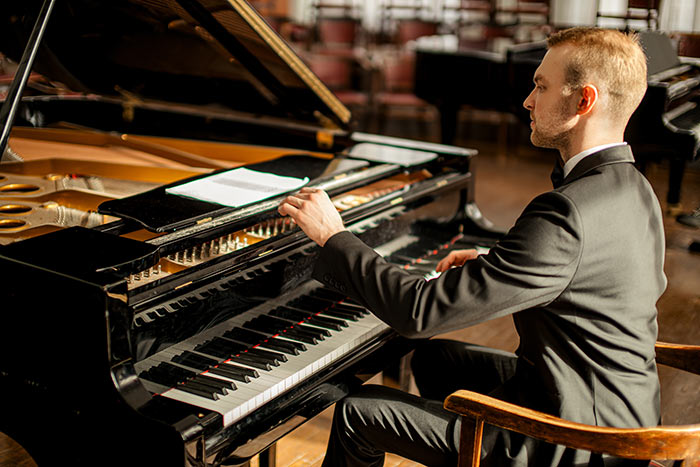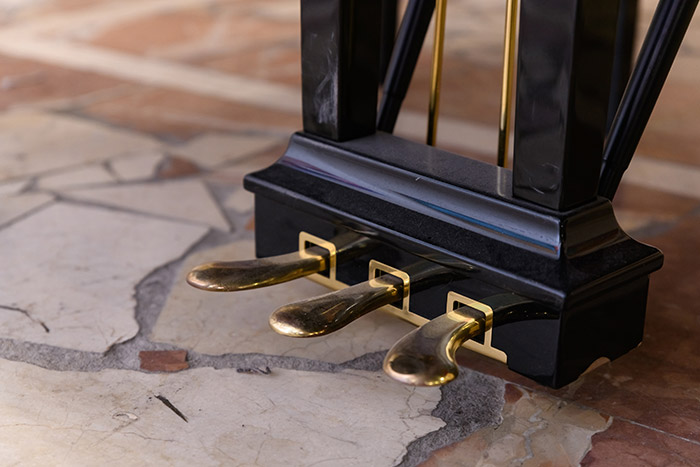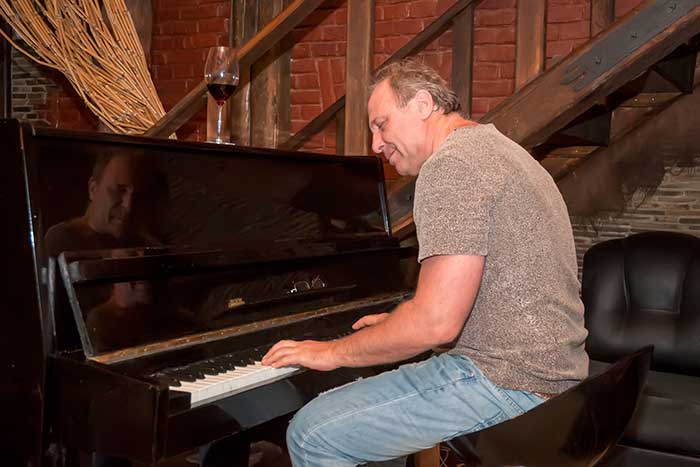Scales can be seen as a tedious task by many people who choose to study the piano but without them your technique and knowledge will never reach its full potential and no one wants to be held back!
I get asked frequently by students ‘why do I have to play scales?’ ‘What do they even do that benefit me?’ I usually struggle to find one short answer when this happens because there’s a whole list of reasons I could dive into…. And I do.
The main reason for practicing your scales is to build up your finger technique. If you take piano lessons then you are most likely used to hearing your teacher commenting on how your hands are placed, whether they see tension or whether your fingers are being lazy. But scales will improve this, it allows flexibility and agility on the piano which are two key components to improving your pianistic skills. Strong and independent fingers are what brings you out of the beginner zone into the intermediate level, without it you may become fatigued and get held back.
Scales help you understand the importance of rational fingerings. Placing the correct fingers on notes are one of the most important aspects of the piano to get right. It stops you from getting tangled and running out of fingers during a phrase. There should be no need to suddenly panic
and quickly substitute a finger because something doesn’t quite feel right. There should be no need (unless exception) for thumbs on black keys. If these issues occur then the basic reason is because you aren’t focusing on your scales enough. Learning the fingerings of scales will help you place this knowledge within your pieces which subsequently speeds up the learning process.
Not only are scales vital when playing your repertoire but they also contribute to understanding the piece theoretically. With scales comes key signatures, and to understand a piece you must have an understanding of key signatures. For example, if there are three sharps at the beginning of your piece you should be able to work out which key you are in. You should also be able to spot why there’s an added accidental, is it because your piece is minor so they’re adding a raised seventh? Is it a descending pattern and a natural is placed to follow the melodic formula? Is it because you are modulating to the dominant key? Arguably you cannot play a piece to the highest standard unless you understand the harmony. It would be like trying to build a table without understand the instructions, you can only get so far until you are stuck.
Rhythm can also be improved by scales. I can imagine your teacher has put a metronome on during your lesson. Sometimes the metronome can be so frustrating when you just do not know how to fit your notes within the click. Scales will help you build that internal beat as you practise them consistently with a mixture of fast and slow metronomic markings accenting the important beats. Once you have mastered this it will be easier to gage the rhythm that your pieces require.
So how should we practice scales?
There are lots of ways to practice your scales and it doesn’t have to be dull.
Firstly, write all your scales down and cut them out. Put them in a hat or a bowl and this will add more mystery to your practise and will also stop you from practising in a chronological order. Pick out a generous amount each time you sit at the piano and then once you have played the scales, create piles of ones you are confident with and ones which need more work on. Keep practicing this until all your scales are in the ‘confident’ pile and then start again.
Using different articulations, rhythms and dynamics will keep you engaged as you tackle a new challenge each time.
When using different articulations you can slur your notes or place staccatos, even a mixture of both if you are feeling brave.
When it comes to dynamics there’s a whole palette that you can use. You can play the whole scale quietly or you can play the whole scale loudly. Not only this but you can place a gradual crescendo/diminuendo throughout the scale, alternate between the two or even do a sudden change of dynamic at the end. There are many colours that you can experiment with this way.
Another game you can play with yourself is to place an accent on a note and see if you can remember where the accent was for each octave, this will transform your from feeling like a chore. Different rhythms is a technique that a lot of people miss out. As long as your scale is consistent then whilst you practise it shouldn’t matter if you are playing quavers, crotchets, minims or semiquavers, you have so many different rhythms to choose from so put them into use. You can even try dotted rhythms or triplets for an added challenge as well as alternating note durations within the scale.
Pitch is another technique people tend to miss out on. It is very common to start your scale around the middle C area of the piano but why not try lower down or higher up, or even go from the very bottom of the piano all the way to the very top. Maybe try place your hands two octaves apart rather than one. The piano has 88 keys, do not be afraid to use them all.
Once you are confident with your scales you can try and play them with your eyes shut, this will help with spacial awareness around the piano which will eventually lead to you not having to rely on looking at your hands when playing pieces which is a mistake many beginners make. It also will show that you truly are a master at your scales and you have been dedicating the time and effort it takes to improve at the piano.
Hopefully when putting all of these different suggestions into practice it will reignite that spark of passion in you and will help you become excited about technical exercises again. Remember loving what you do is half of the battle when learning an instrument, you must want to do it or else you will find yourself lost in a routine.











